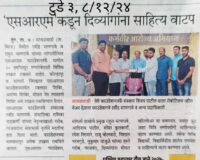Understanding Acute Myeloid Leukemia (AML) in Adults
Acute Myeloid Leukemia, commonly referred to as AML, is a type of cancer that affects the bone marrow and blood. It is characterized by the rapid growth of abnormal white blood cells, known as myeloblasts or leukemia cells, which interfere with the production of normal blood cells.
AML typically progresses quickly, making early detection and treatment critical. While the exact cause of AML is often unknown, certain risk factors such as exposure to radiation, certain chemicals, or genetic predisposition may increase the likelihood of developing this condition.
Symptoms of AML can vary but often include fatigue, shortness of breath, easy bruising or bleeding, fever, and frequent infections. However, these symptoms can be nonspecific and may resemble other common illnesses, making diagnosis challenging.
Treatment for AML usually involves a combination of chemotherapy, targeted therapy, and in some cases, stem cell transplantation. The goal of treatment is to eliminate leukemic cells from the body and allow healthy blood cells to regenerate.
Managing AML requires a multidisciplinary approach involving oncologists, hematologists, nurses, and other healthcare professionals. Additionally, support from family, friends, and organizations like SRM Foundation can provide valuable resources and assistance to patients and their loved ones throughout their journey with cancer.
At SRM Foundation, we are dedicated to supporting individuals affected by AML and other cancers, providing financial assistance, emotional support, and access to treatment options. Together, we strive to alleviate the burden of cancer and improve the quality of life for those in need.
If you or someone you know is facing AML or any other form of cancer, please reach out to us for support and guidance. Together, we can make a difference in the lives of those battling cancer and help them navigate through their challenges with strength and resilience.



